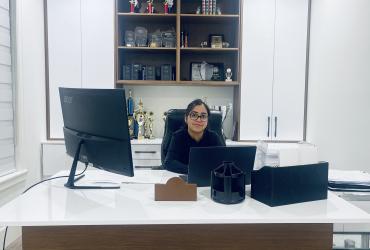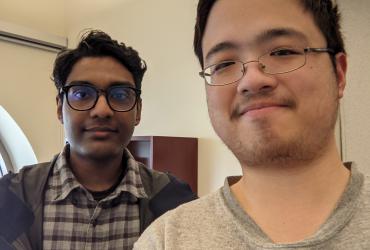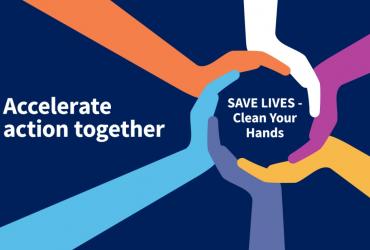Reflection
This has been a co-op that has pushed me to grow in my weakest areas. I had little experience with web development aside from one course before this internship. I also did not know much about networking or container technologies. A lot of the content felt quite alien at first, however by the beginning of my third month I noticed that I was beginning to pick up the speed and complexity of the tickets I would pick up. When I start new tickets I also have a better understanding of where to look for answers, or how to be more specific with my questions. Throughout these first four months, I have felt supported by my team and I have gotten to work with many people with diverse skills. Working at Absolute you can push yourself as much as you want which means that you’re not stuck doing tedious work. As you grow you can contribute to more interesting work which keeps the experience exciting. Working in DevOps you get to automate workflows into pipelines. Learning about Gitlab pipelines has been great and will be useful in the future. Working in a service-based architecture means having to understand the infrastructure of the code base, what all the components do and how they interact. This leads to interesting challenges which is very rewarding. I have had the opportunity to write more scripts to automate different procedures. Learning about APIs has boosted my confidence in working with modern technologies.
Most Valuable Aspects of This Experience
Working as an associate developer on an infrastructure team there is no shortage of work. Not to mention the variety of tasks there are to do keeps things interesting. There is work for a wide range of skillsets and interests which guarantees that I can find tasks that I am passionate about. Due to the breadth and depth of tasks, the team is full of people with knowledge that compliments the challenges of DevOps. Having a variety of tasks means that it is easier for me to find out what I like, but equally as important, what I don’t like. I have found lots of support throughout my experience. Throughout my internship, I have had one-on-one meetings with my manager. This has been helpful for many reasons. Feedback helps let me know that I am doing a good job and am on track. These meetings have also allowed me to voice my interests, and allows me to shape my own experience.
Connection to Academic Studies or Career Goals
During my time at SFU, I took courses in cybersecurity and cryptography. This has piqued my interest in what it would be like to work at a security company. This was a motivating factor for me to apply for the job and push myself throughout the interview process. So far I have participated in security patching, added digital certificates to HTTP connections, and removed other security vulnerabilities. As I reach the end of my degree I am discovering if my interests throughout school can become a career. It is for this reason that I find my experience to be related to my career goals.
Advice for Future Students
Choose work that you find interesting. If you wait for your team to hand you projects you will be bored waiting for work that comes to you. When you finally receive these projects they might not suit your interests. If you’re proactive, then you can shape your co-op experience. Be confident in your abilities, but be humble. Try to solve problems on your own first. It’s good for learning and it will allow you to identify where you get lost. When you’re completely lost be humble enough to ask for help. Don’t be afraid to have a few tickets on the go so that way if you get stuck on one project then you have other tasks that you can switch to. In the beginning, there will be a lot of time while you are waiting for a response from your team. Use this time to work on other projects or to learn new skills.














